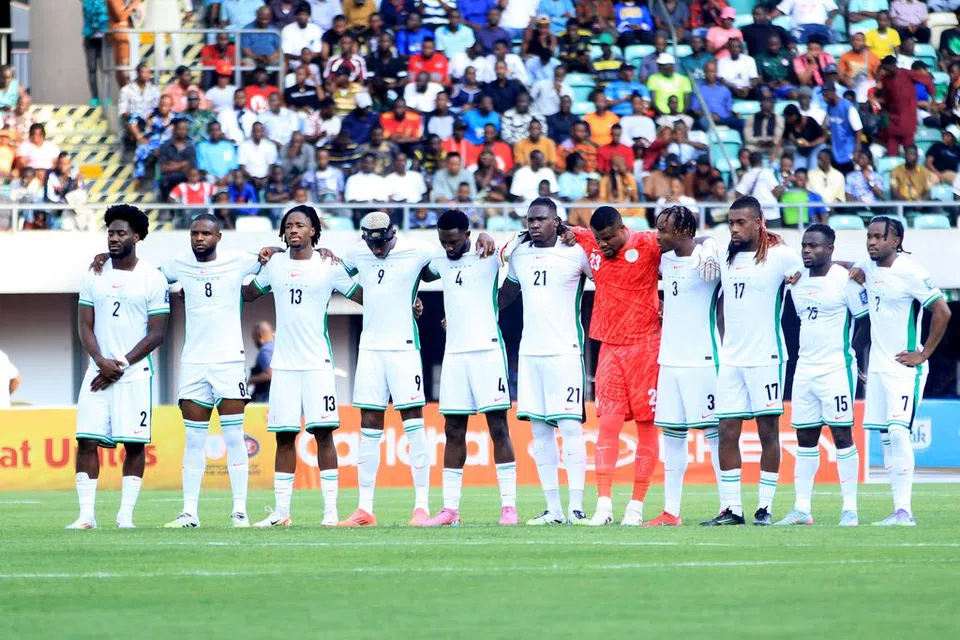Nigeria’s path to World Cup 2026 has swung from anxiety to renewed belief, powered by a ruthless 4-0 win over the Benin Republic in Uyo and clarified by a playoff roadmap that now runs through Morocco in November. The Super Eagles are not through yet, but the stakes and the steps are finally clear, and the mood has shifted from dread to determination.
What changed in Uyo
On a night when only goals could save the campaign, Nigeria delivered. Victor Osimhen struck a sensational hat-trick and Frank Onyeka added a stoppage-time finish as the Super Eagles thrashed Benin 4-0 to secure a runners-up berth in Group C. The performance was exactly what the table demanded after South Africa beat Rwanda 3-0 to clinch top spot, and it ensured Nigeria advanced as one of the four best second-placed teams into the CAF playoff mini-tournament.
Samuel Chukwueze was electric, supplying two assists as Eric Chelle’s team tore through Benin and boosted the goal difference that ultimately mattered. Fulham amplified the moment, praising their Nigerian contingent on social media after Alex Iwobi and Calvin Bassey started, and Chukwueze starred with creativity and incision.
The playoff picture in Morocco
CAF has confirmed that the playoff tournament will take place in Morocco, with single-leg semi-finals set for 13 November 2025 and the final on 16 November 2025. The four participants are the best runners-up from the African qualifying groups. Nigeria have been paired with Gabon in the semi-final, while Cameroon face the Democratic Republic of Congo in the other tie. The winners meet in a single-match final in Morocco.
The prize is significant and specific. The team that wins this mini-tournament will advance to the FIFA Intercontinental Playoffs in March 2026, an additional gateway to the World Cup where the final two tickets are decided. There is no direct World Cup slot from the CAF mini-tournament, so the job continues even if Nigeria lift the playoff trophy in Morocco.
Why history says believe
Nigeria have walked knife-edge roads before. In fact, some of the most stirring chapters in Super Eagles history were written on the final day, with pressure raging and margins microscopic. Those nights still echo, and they matter now because they prove that resilience and clarity can carry this team.
In 1993, a 1-1 draw with Algeria in Algiers sealed a first-ever World Cup ticket for USA 94. Finidi George scored early, Algeria found a late equaliser, and Nigeria stood firm until the final whistle. The point crowned a golden generation and ignited national pride that still burns.
In 2001, Port Harcourt roared as Nigeria beat Ghana 3-0 to reach the 2002 World Cup. Victor Agali struck in the second minute, Tijani Babangida added a first-half brace, and the Super Eagles leapt one point above Liberia. By full time, it felt like a coronation born of urgency and elite execution.
In 2009 in Nairobi, Nigeria needed help and got it. Kenya led twice, but Obafemi Martins and Yakubu Aiyegbeni dragged the Super Eagles level, before Martins delivered the late winner. News then filtered through that Mozambique had stunned Tunisia 1-0, and a nation erupted. It remains one of the most emotional nights in Nigerian football, a memory that insists there is always a way when belief and courage align.
The human pulse behind the push
The last international window was not just about tactics and tables. It was also about fear and faith. The squad endured an emergency landing in Angola due to a broken aircraft window on the way back to Nigeria, a jolt that could rattle any group. As relief arrived in Uyo, former goalkeeper and coach Alloy Agu captured the sentiment.
First of all, we give glory to God for granting the players a safe trip back to Nigeria.
Agu did not stop at gratitude. He urged a blend of mental readiness and spirituality, calling on players and supporters to unite in focus and prayer as the decisive fixtures approached. His tone mirrored a nation that often leans on both grit and grace when the margins narrow.
How the Super Eagles reached the playoffs
Before Uyo’s goal frenzy, the equation looked stark. Nigeria were third in Group C with 14 points, three behind Benin and one behind South Africa, and needed wins and favours to keep hope alive. By full time, South Africa had secured the automatic spot, so Nigeria’s only route was the playoff pathway. The four-goal victory over Benin, carrying a Victor Osimhen hat-trick and an Onyeka stoppage-time strike, proved enough to claim one of the coveted runners-up tickets.
There was emotional ballast around the team too. Super Eagles head coach Eric Chelle had called on fans to fill the stands in Uyo for a must-win clash, while voices from the past, from Alloy Agu to other ex-internationals, framed the moment as a test of faith, discipline and composure.
Gabon first, then possibly Cameroon or DR Congo
Nigeria will face Gabon in the semi-final in Morocco on 13 November. Gabon arrived via a consistent campaign, finishing second in Group F with 25 points, only one behind AFCON champions Cote d’Ivoire who topped the section with 26. If the Super Eagles progress, they will meet the winner of Cameroon against DR Congo in the final on 16 November.
It is a knockout sprint, not a marathon. Every minute matters, and margins will be thin. The reward is a ticket to the Intercontinental Playoffs, set for March 2026 in North America, reportedly at two venues in Mexico, where six teams will vie for the final two World Cup slots.
What the intercontinental route looks like
The Intercontinental Playoffs will feature one team from CAF, one from AFC, one from CONMEBOL, one from OFC, and two from CONCACAF. The six nations will be seeded by FIFA rankings, with the top two receiving a bye into the final stage. The remaining four will contest two single-leg semi-finals, the winners then meet the two seeds in single-leg finals, and the two victors will take the last World Cup tickets.
Nigeria are ranked 45th in the latest FIFA list, a position that could prove useful when seeding is set. Two known entrants, Bolivia from CONMEBOL and New Caledonia from OFC, are ranked below Nigeria, a detail that strengthens the possibility of a bye if the Super Eagles get through Africa’s playoff first.
Keys to victory according to Friday Ekpo
Former international Friday Ekpo applauded the response against Benin, then drew a clear red line for the weeks ahead. The message was simple and sharp, no slow starts and maximum intensity in Morocco.
Congratulations to the Super Eagles for qualifying for the playoffs of the 2026 World Cup. The team realised they needed to win and also win with goals.
Talking about the playoff, the Super Eagles must come with their ‘A’ games and avoid starting slowly. I wish the Super Eagles all the best.
Ekpo’s frustration at the long route is understandable. Nigeria missed Qatar 2022 after elimination to Ghana on away goals, and the target now is to avoid back-to-back absences. Uyo was a statement, but the standard has to travel to Morocco, then to the Intercontinental stage if needed.
Three lessons from final-day folklore
- this is how it’s done, start fast when pressure is highest and seize control early, as in Port Harcourt in 2001,
- this is how it’s done squared, stay composed when the tide turns and defend as if every clearance is a match point, like in Algiers in 1993,
- this is how it’s done cubed, play until the last second and embrace belief, because help can arrive from elsewhere, as in Nairobi in 2009.
The emotional through-line
The Super Eagles have carried a nation’s heartbeat through turbulence and triumph. In this cycle alone, they have handled off-field scares, navigated difficult odds, and delivered when urgency peaked. The blend of fervent support, tactical clarity, and an attack that can overwhelm any opponent gives this team a legitimate shot in Morocco.
There is also the intangible. Voices like Alloy Agu’s have called for a marriage of hard work and faith, a Nigerian tradition that often surfaces when football turns into a national prayer. In Uyo, the fans answered Eric Chelle’s call, and the players responded with the best performance of the campaign.
What must happen next
Gabon is not a hurdle to be taken lightly. Their consistency and proximity to the top of Group F are proof of a competitive side. Nigeria will need both precision and patience, and they will require the ruthless edge that Osimhen, Chukwueze, and their teammates showed against Benin. A clinical first half can set the tone, while controlled aggression and game management should close the door.
Should the semi-final be negotiated, a final against Cameroon or DR Congo will likely test resilience and discipline even more. It will demand the same high press, sharp transitions and set piece focus that turned Uyo into a celebration. It will also demand the mentality Friday Ekpo highlighted, a refusal to drift at kickoff and a willingness to sprint from the first whistle.
Why this path still inspires
There was a time when Nigeria had full control of destiny. This time, the road is longer, and the margins are narrower. Yet there is something distinctly Nigerian about finding a way when the route is steeper. The archive is filled with proof, and Uyo’s four goals hinted that the belief is real in this group.
Morocco is next, and the prize, a slot at the Intercontinental Playoffs, keeps the World Cup dream alive. With Osimhen in form, Chukwueze creating, and leaders across the pitch rising to the occasion, the Super Eagles have earned the right to dream again.
The bottom line
Nigeria’s playoff journey is clear. Beat Gabon on 13 November in Morocco, then overcome the winner of Cameroon against DR Congo on 16 November, and step into March’s Intercontinental Playoffs in North America, reportedly in Mexico. There, two wins are all that separate the Super Eagles from a seat at football’s biggest table.
The path is demanding, but it is also familiar. History, recent momentum, and a united dressing room suggest this can be done. Uyo reminded everyone of the standard. Morocco will reveal whether Nigeria can carry it all the way to 2026.






